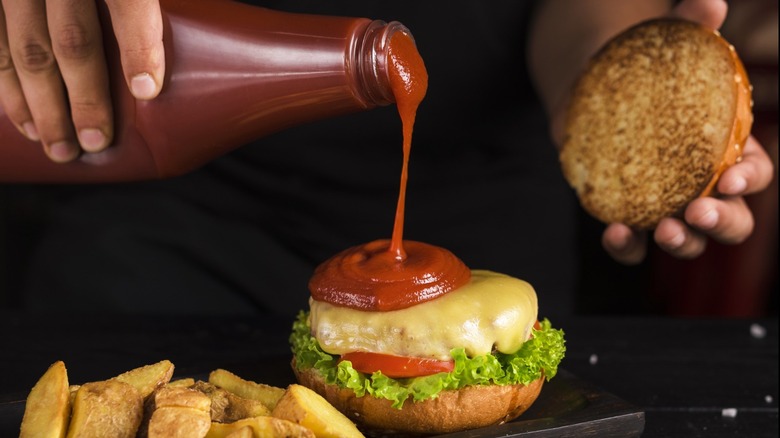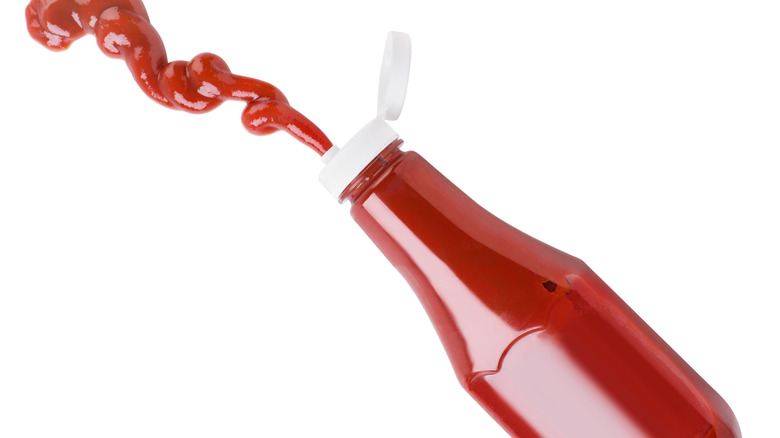The Real Reason You Should Avoid Bottled Table Ketchup At Restaurants
If you love pouring a generous helping of your favorite bottled table ketchup — or catsup — on your burger, chicken nuggets, or scrambled eggs when you're at a restaurant, you're not alone. According to Statista, over 308 million Americans indulged in the condiment in 2020. An American invention, it is widely believed that Henry John Heinz came up with the modern-day ketchup recipe by adapting a thick, Chinese tomato-based sauce called Cat Sup (via Deutsche Welle).
Given that tomatoes make up ketchup's primary ingredients, the experts at Healthline point out that ketchup has some health benefits. This is because tomatoes contain lycopene, a plant compound that health experts believe may help lower the risk of cancer. Lycopene is also thought to have anti-inflammatory and anti-diabetic properties. On the downside, however, ketchup can also be high in sugar and salt.
Yet, when it specifically comes to bottled table ketchup that you find in a restaurant, there are concerning factors that go even beyond the sugar and salt content that should make you think twice before you pick up that bottle and slather its contents all over your next burger.
Here are the issues with bottled table ketchup at restaurants
For one, whether your ketchup bottle is already on the table at a restaurant or if your server brings you the bottle, that bottle has probably already been handled by many people over the course of the day — or longer — meaning it could carry germs. This leads to another issue.
According to Reader's Digest, the reason that the same bottles keep making the rounds is that the ketchup in each of the bottles has likely been "married." This means that when the volume of ketchup in each of the bottles goes down, the servers will marry or combine the ketchup from separate bottles into one. Marrying ketchup bottles makes the bottles look fuller and more appealing; it is also a way for restaurants to avoid waste and save money since this helps avoid throwing out partially used bottles of ketchup. However, you don't know how old some of that ketchup is, which means you may end up consuming old or expired ketchup with an unpleasant taste — or worse (via Eat This, Not That!).
So the next time you are in a restaurant, check with the server to see how long that bottled table ketchup has been in action. If you don't get a straight answer, ask for a brand new bottle or individual packets instead. This will ensure that the ketchup is fresh, and the bottle or packets will have likely undergone less handling.


